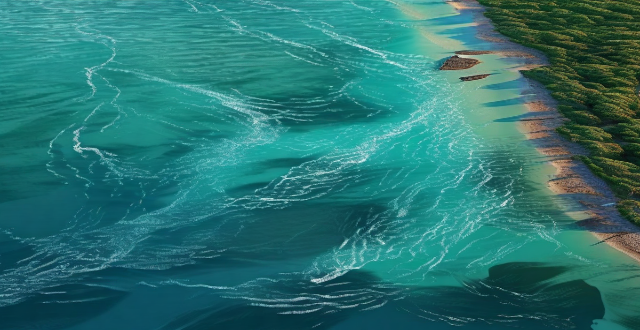Global warming, primarily caused by greenhouse gas emissions from human activities, has significantly impacted sea levels. This includes melting glaciers and ice sheets, thermal expansion of ocean waters, coastal erosion, saltwater intrusion, increased flooding and storm surge risks, and displacement of coastal communities. Addressing these issues requires both mitigation efforts to reduce emissions and adaptation strategies to cope with the changes already underway.

Impact of Global Warming on Sea Levels
Global warming, primarily caused by the emission of greenhouse gases from human activities such as burning fossil fuels and deforestation, has had a profound impact on sea levels around the world. The consequences are multifaceted, affecting ecosystems, weather patterns, and human populations alike. This detailed analysis will explore these impacts, highlighting the most significant changes observed in recent decades.
Rising Temperatures
*Melting Glaciers and Ice Sheets*
One of the most visible effects of global warming is the melting of glaciers and ice sheets, particularly in Greenland and Antarctica. As temperatures rise, vast amounts of ice are transformed into water, which inevitably flows into the oceans. This process contributes significantly to sea-level rise.
- Greenland Ice Sheet: Satellite data shows that Greenland is losing ice at an accelerating rate, with some estimates suggesting up to one trillion tons of ice lost per year since 2000.
- Antarctic Ice Sheets: While less understood due to its remote location, the Antarctic ice sheet also experiences melting, especially in its western regions, contributing to sea-level rise.
*Thermal Expansion*
Warmer temperatures don't just melt ice; they also cause water to expand. As ocean temperatures increase, the volume of seawater expands, leading to higher sea levels. This phenomenon, known as thermal expansion, is responsible for roughly half of the observed sea-level rise over the past century.
Consequences of Rising Sea Levels
Rising sea levels have numerous implications for both natural environments and human societies. Here are some key points:
*Coastal Erosion*
Higher sea levels mean more forceful wave action against coastlines, leading to increased coastal erosion. This affects not only beaches but also the habitats of coastal plants and animals.
*Saltwater Intrusion*
As sea levels rise, saltwater can intrude further into freshwater sources like rivers and aquifers. This poses a significant threat to agricultural lands and drinking water supplies.
*Flooding and Storm Surge Risks*
With sea levels higher, even moderate storms can cause flooding in areas that were previously safe. Additionally, storm surges during hurricanes or typhoons become more devastating, posing greater risks to human life and infrastructure.
*Displacement of Coastal Communities*
In low-lying island nations and coastal cities around the globe, rising sea levels threaten to displace millions of people. These communities face the daunting task of relocating or adapting to the new reality of living with water.
Mitigation and Adaptation
Addressing the impacts of global warming on sea levels requires both mitigation efforts to reduce greenhouse gas emissions and adaptation strategies to cope with the changes already underway.
*Mitigation Efforts*
- Reducing Fossil Fuel Use: Transitioning to renewable energy sources can slow the rate of temperature increase.
- Forest Conservation: Protecting forests helps to sequester carbon dioxide from the atmosphere.
*Adaptation Strategies*
- Seawalls and Barriers: Building protective structures can help shield coastal cities from rising waters and storm surges.
- Restoration of Wetlands: Wetlands can act as natural buffers against rising sea levels and storm impacts.
- Improved Water Management: Developing systems to manage and purify water affected by saltwater intrusion is crucial for sustainability.
In conclusion, global warming has undeniably impacted sea levels worldwide, leading to accelerated melting of ice caps, thermal expansion of ocean waters, and a host of challenges for ecosystems and human societies alike. Addressing this complex issue requires a concerted global effort to both reduce greenhouse gas emissions and develop innovative adaptation strategies to protect our planet's vulnerable coastal regions.